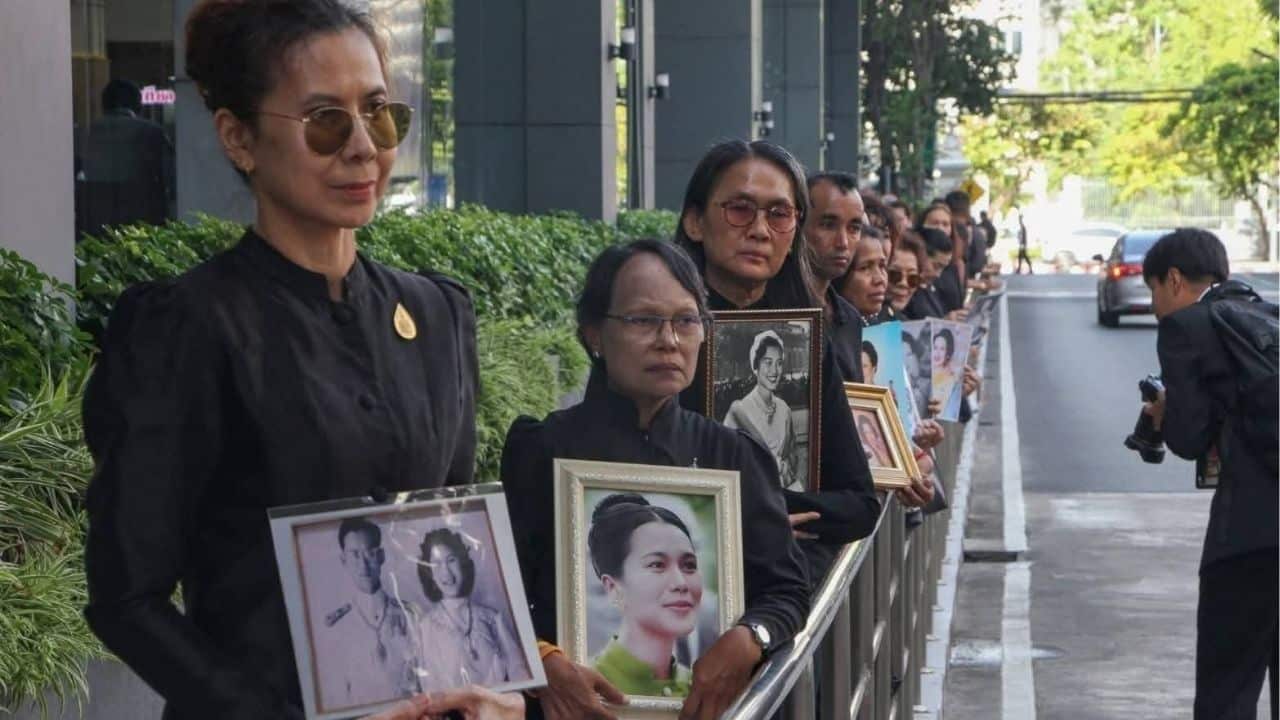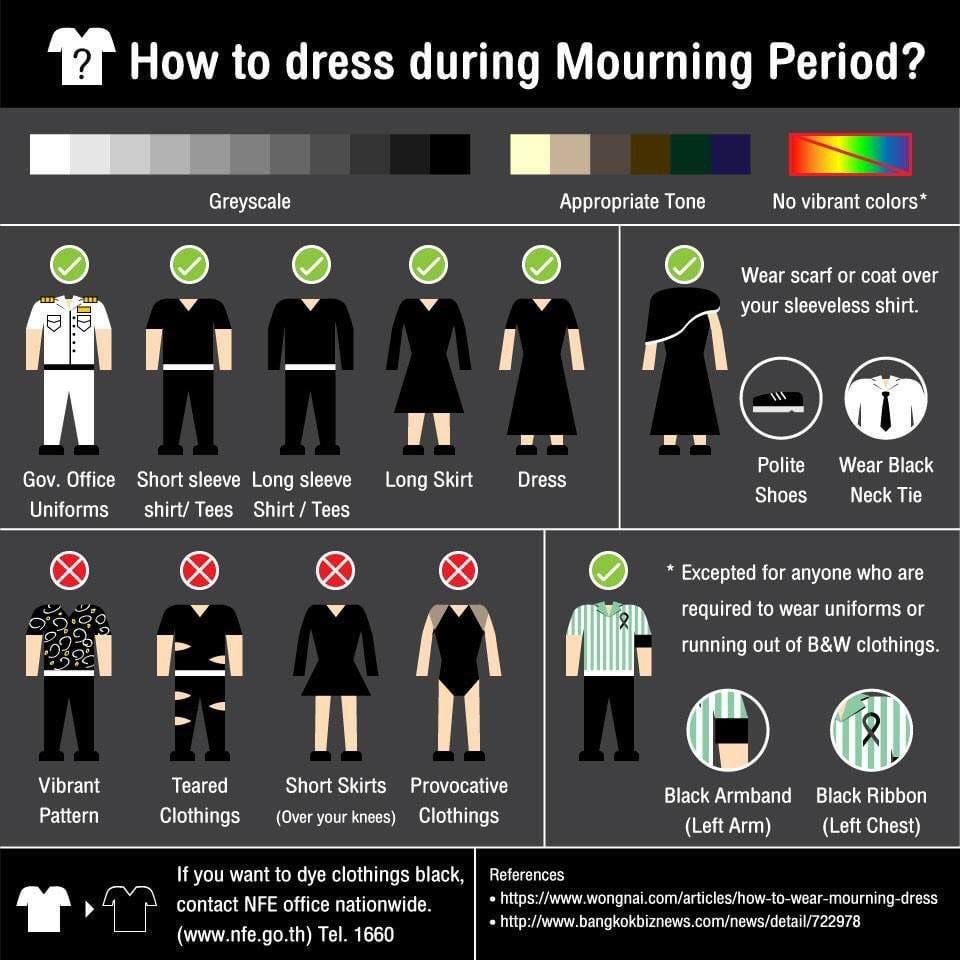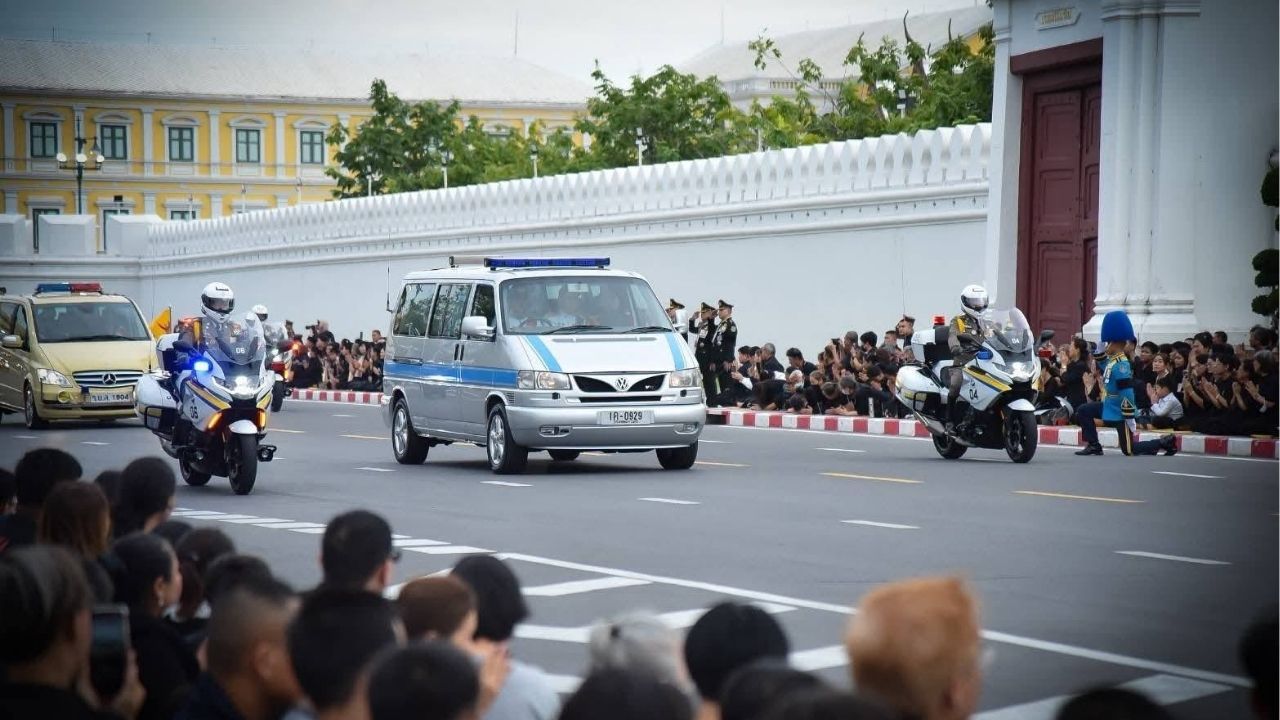What happens during a royal mourning period in Thailand? A guide for expats and tourists
What you can expect to see and how you should behave during this time

Thailand is a country that deeply honours its royal family in life and in death, and following the passing of Her Majesty Queen Sirikit, the Queen Mother, on October 24, the country has entered an official royal mourning period.
This is a time that may be unfamiliar to tourists, new expats, or even long-time residents who haven’t experienced such an event before.
While everyday life continues, there are subtle but important changes in tone, conduct, and public life that reflect the nation’s collective grief. This guide explains what you should expect during the mourning period, how it may affect your plans, and how to show respect in line with Thai customs.
What is a royal mourning period in Thailand?

A royal mourning period is a time of national reflection and reverence declared after the death of a senior royal figure. In this case, Queen Sirikit, who passed away peacefully at age 93, had long been regarded as a symbol of maternal grace, cultural preservation, and public service.
Following her death, King Maha Vajiralongkorn has declared a one-year mourning period for the Royal Family and court officials. This mirrors the mourning period observed after King Bhumibol Adulyadej’s passing in 2016.
For the general public and visitors, the first 30 days after the queen’s death carry the most visible expressions of mourning.
What changes during the mourning period?
There will be some:
- From the date of the queen’s passing, national flags at government buildings, state enterprises, and schools are lowered to half-mast for 30 days. This serves as a formal gesture of grief.
- Government officials and civil servants are required to wear black or white clothing for the full 30-day period.
- Thai citizens commonly wear black or muted colours, especially during the first month.
- Foreigners are not legally required to follow suit, but are strongly encouraged to dress respectfully. The clothing would be colours in subdued tones (such as black, grey, or white), covered shoulders, or a black ribbon on your sleeve.

by Guangming Ackarapolpanich Cr. Twitter @saruntornk
This is especially important if you’re in Bangkok and planning to visit areas near the Grand Palace, where the Queen will lie at Dusit Maha Prasat Throne Hall.
Should I cancel events or travel plans?
No, but adjust your tone.
Despite some early confusion, Thai officials have confirmed there is no official ban on private entertainment or nightlife events. However, organisers and venues have been urged to adapt their activities to reflect the mourning period. This might mean:
- Cancelling loud celebrations.
- Toning down live music or parties.
- Replacing upbeat events with more subdued formats.
Suppose you’re planning a wedding, corporate party, or major celebration. In that case, it’s a good idea to check with your venue or local authorities for guidance and, most importantly, to act in the spirit of respect and discretion.
Online behaviour matters, too
Thailand’s lèse-majesté laws are among the strictest in the world. Criticising or making light of the royal family, including online, can result in severe penalties.
During this mourning period, it’s especially important to:
- Avoid posting jokes, memes, or speculation about the queen’s passing.
- Use respectful language when discussing the queen’s death or royal funeral online.
- Be cautious about what you share or comment on, even if it seems harmless.
What are the funeral and ceremonial plans?

As per royal tradition, Queen Sirikit’s funeral will be held with full honours, although the actual cremation ceremony may take place months from now. In the meantime, the Queen’s will rest at the Dusit Maha Prasat Throne Hall within the Grand Palace, a sacred space reserved for royal rites.
Throughout this period, you can expect:
- Nationally televised tributes, documentaries, and ceremonial coverage.
- Commemorative events are held in temples and public spaces across Thailand.
- Potential closures or traffic restrictions near royal sites during key events.
As a visitor or expat in Thailand, you’re not expected to know every royal custom, but making the effort to understand and participate, even in small ways, shows solidarity with the Thai people.
Whether it’s dressing modestly, attending a local ceremony, or simply lowering the volume of your nightlife, small gestures go a long way during this royal mourning period.
While the queen’s death marks the end of an era of such an influential figure in Thailand, it also highlights the enduring respect for tradition, ceremony, and grace, values that define this country in both its celebrations and its grief.
ดูโพสต์นี้บน Instagram
Latest Thailand News
Follow The Thaiger on Google News:


























